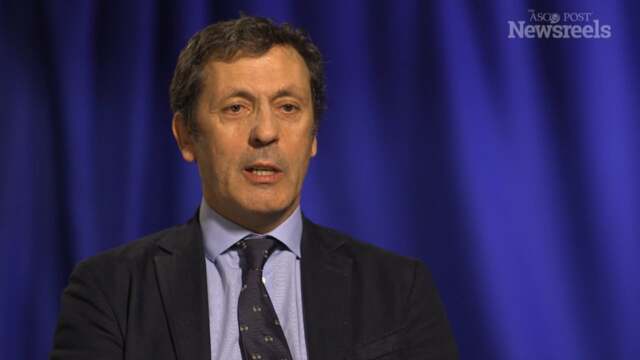Judith Balmaña, MD, PhD, on Metastatic Breast Cancer: Study Results on Lurbinectedin
2016 ESMO Congress
Judith Balmaña, MD, PhD, of Vall d’Hebron University Hospital, discusses the findings of a single-agent phase II trial on the antitumor activity of lurbinectedin in BRCA1/2-associated metastatic breast cancer patients. (Abstract 223O)
Sumanta K. Pal, MD, of the City of Hope, discusses phase II findings on the efficacy and safety of nivolumab monotherapy in patients with metastatic urothelial cancer who have received prior treatment. Follow him on Twitter: @montypal
Melanie Royce, MD, PhD, of the University of New Mexico, discusses phase II study findings on first-line everolimus plus letrozole in patients with ER+, HER2− advanced breast cancer. (Abstract 222O)
Christopher J. Sweeney, MBBS, of the Dana-Farber Cancer Institute, discusses how long-term study results showed no survival benefit in men with ogliometastatic prostate cancer. (Abstract 720PD)
Luis G. Paz-Ares, MD, PhD, of the Hospital Universitario 12 De Octubre, discusses in Spanish overall survival data on afatinib vs gefitinib in patients with EGFR mutation–positive non–small cell lung cancer. (Abstract LBA43)
Martin Reck, MD, PhD, of the LungenClinic, discusses in German study findings on pembrolizumab vs platinum-based chemotherapy as first-line therapy for advanced non-small cell lung cancer with a PD-L1 tumor proportion score ≥50%. (Abstract LBA8)





